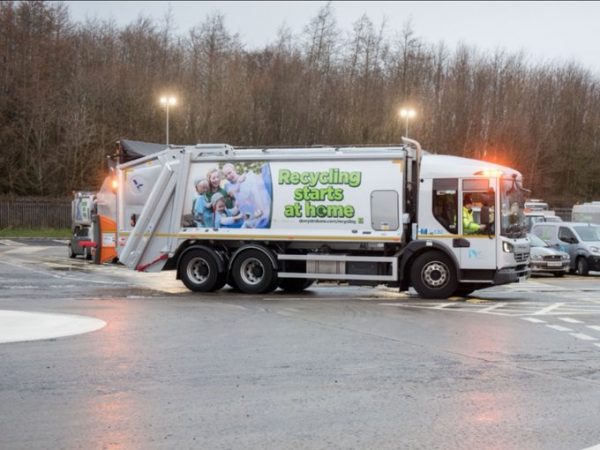
Combing food and garden waste collections extended
Members attending the meeting were given an update on the current arrangements within the City and District that see residents within the Strabane area, approximately 8.500 households, receiving a combined fortnightly green and food waste collection using a 240 litre wheeled bin.
These arrangements were initially trialled in consideration of previous arrangements where the households would have availed of green waste collections only and the majority of properties within the City area having food waste collections only.
At present approximately 33,000 households across the district have both separate food and green waste collections.
The Head of Environment with the Council explained that while Food Waste Regulations favour separate food waste collections, provision exists within the regulations for combined food and green waste collections, if the volume of food waste would be at least equal to the volume collected separately.
He said that as part of the pilot trial undertaken by Council, it was revealed that Green Waste only collections in Strabane was averaging at 12.8 kg per household, per month, while Food Waste only collections in Strabane (for same period) was averaging at 7.25 kg, per household, per month, while the combined Green and Food collections in Strabane were producing 25.9 kg per month.
He said this figure showed that there was no worsening effect on waste amounts (when combined) and that the contractor treating these waste streams – i.e. separately collected food waste, separately collected green waste and combined collections – has advised that the first action they take within their treatment process is to co-mingle all of the wastes.
Conor Canning further explained taking forward the comingling of food and green waste will allow Council to reduce the number of vehicles undertaking collections, reducing carbon emissions and fuel costs in keeping with Councils Climate Action Plan.
He said crews will be re-deployed within refuse collection and that this initiative will also reduce the number of containers that householders use to deal with their waste, as well as reduce some of the issues reported with regard to handling and storing of food waste caddies, making it easier and more practical for people to recycle organic waste.
He explained this change would only be introduced where practical to do so and those properties without gardens – terraced housing, maisonettes etc – will continue to receive a weekly food waste collection using existing collection methods.
Mr Canning added that where Council is providing weekly food waste collections to businesses, these too will continue as at present and that the combined collection will enable clearer communication of recycling messages around food and garden waste, especially the circular journey of organic waste from peelings to plants, as essentially the food and garden are mixed by the contractor and turned into compost which is then used in local gardens and parks.
Concluding the Head of Environment said the scheme would become operational in the coming weeks with information being issued to residents affected.
He added that the roll out will also be complemented by a full Marketing Campaign to increase awareness helping residents make the switch from outdoor caddy to big brown wheelie bin including radio ads, digital and outdoor promotion.





